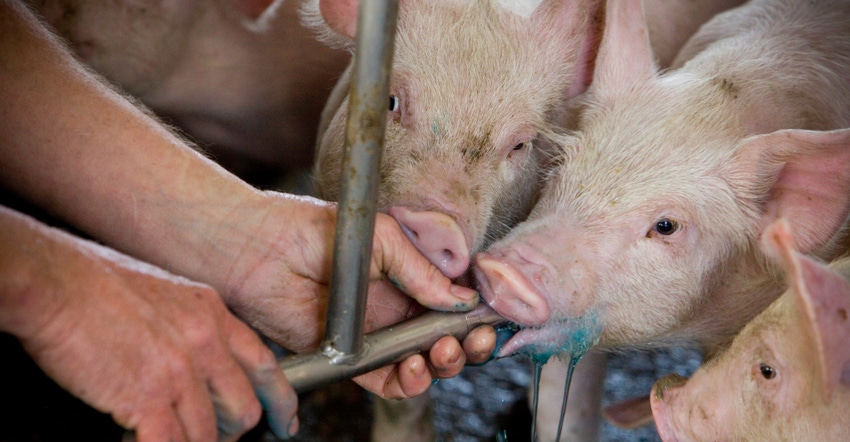3 reasons why controlling ileitis through oral vaccination just makes sense
Research highlights ROI of preventing disease rather than trying to treat it
October 1, 2018

Sponsored Content
Medicated feeds are often thought of as the answer to treating pigs infected with Lawsonia intracellularis, the bacterium that causes ileitis. However, a growing body of research demonstrates that transitioning from dietary antimicrobials to a vaccination program can help reduce the impact of ileitis and deliver improved performance, at reduced costs.1,2,3
The following three points illustrate the advantages that vaccination with Enterisol® Ileitis delivers:
1. Improved performance – A recent Finnish study tracked average daily weight gain (ADWG) of pigs vaccinated with ENTERISOL ILEITIS from the nursery through the finishing phases.1 At the end of the nursery phase, vaccinated pigs weighed an average of 2.65 pounds more than non-vaccinated pigs. At market, vaccinated pigs weighed an average 7.94 pounds more than control group pigs.
A large-scale field trial in Korea produced similar results. Nursery pigs vaccinated with ENTERISOL ILEITIS showed significantly higher ADWG than the control group at 20 weeks post vaccination.2
2. Vaccines deliver ROI – In the Korean study, the improvement in ADWG translated to a 4.2:1 return on investment from using ENTERISOL ILEITIS, and a $4.80-per-pig higher gross margin.2
In addition, the cost of a vaccination program that includes the use of ENTERISOL ILEITIS was actually cheaper than a program including injectable antimicrobials, based on a study of pigs in the finishing phase conducted by Pipestone Veterinary Clinic.3 Total cost of feed, water and injectable antimicrobials averaged $1.56 per pig compared to $1.06 per pig for pigs that were vaccinated with ENTERISOL ILEITIS two weeks prior to entering finishing barns.3
3. Prevent rather than treat – While antimicrobials delivered in feed can help reduce the clinical signs of ileitis, they don’t promote immunity like a vaccine does, said Fernando Leite, DVM, MS, PhD, technical manager, Boehringer Ingelheim. “An oral vaccination with ENTERISOL ILEITIS helps build immunity right where it is needed — in the intestinal tract. It’s the optimal solution to protect pigs against this disease.”
Vaccination also aligns with the ongoing industry shift away from the use of medicated feeds under the Veterinary Feed Directive. Many pork producers are already moving toward more judicious use of antibiotics, and ENTERISOL ILEITIS can help them achieve the consumer-driven goal of reduced antibiotic use.
To learn more about developing a vaccination protocol for effective ileitis control on your farm, talk to your Boehringer Ingelheim representative or visit www.swineresource.com.
References
1 Peiponen KS, Birger TT, Junnila JJT, Heinonen ML. Effect of a live attenuated vaccine against Lawsonia intracellularis in weaned and finishing-pig settings in Finland. Acta Vet Scand: 2018; 60:18.
2 Park S, Lee J-B, Kim K-J, et al. Efficacy of a commercial live attenuated Lawsonia intracellularis vaccine in a large scale field trial in Korea. Clin Exp Vac Res: 2013; 2:p135-139.
3 Nerem, J. Lawsonia intracellularis vaccination as an alternative to dietary antimicrobial medication in finishing swine. Presented at SafePork conference, Quebec City, Quebec, Canada. 2009.
Enterisol® is a registered trademark of Boehringer Ingelheim Vetmedica GmbH. ©2018 Boehringer Ingelheim. POR-1082-ENIL0918
About the Author(s)
You May Also Like



